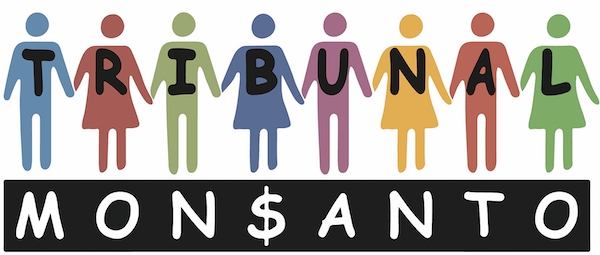
The verdict is now in from the International Monsanto Tribunal, which took place from October 14-16th, 2016 in the Hague in the Netherlands.
During this remarkable two-day trial, which was convened by civil society to assess the case against Monsanto pursuant to international law as well as to evaluate its actions in relation to the crime of ecocide, 30 victims of the company’s practices gave testimony in front of five renowned judges, who have just rendered their legal opinion on the case.
Testimony at the tribunal focused on six main questions and here is a summary of the conclusions for each (the full summary of conclusions and the advisory opinion report are available at the end of the article):
Question 1: Concerning the alleged infringement on the right to a safe, clean, healthy and sustainable environment, the Tribunal concluded that Monsanto has engaged in practices which have negatively impacted the right to a healthy environment. The Monsanto Tribunal hearings gathered testimonies related to various impacts on human health (especially on farmers), soils, plants, aquatic organisms, animal health and biodiversity. These testimonies also included the impacts of spraying crop protection products (herbicides, pesticides).
Question 2: Concerning the alleged infringement on the right to food, the Tribunal concluded that Monsanto has engaged in practices that have negatively impacted the right to food. Monsanto’s activities affect food availability for individuals and communities and interfere with the ability of individuals and communities to feed themselves directly or to choose non-genetically modified seeds. In addition, genetically modified seeds are not always affordable for farmers and threaten biodiversity. Monsanto’s activities and products cause damage to soil, water and to the environment more generally.
Question 3: Concerning the infringement on the right to the highest attainable standard of health that everyone can reach, the Tribunal concluded that Monsanto has engaged in practices that negatively impact the right to health. The Tribunal heard witnesses’ accounts of severe congenital diseases, development of non-Hodgkin lymphomas, chronic diseases, Lasso poisoning or even death occurring after direct or indirect environmental exposure to products manufactured by Monsanto.
Question 4: Concerning the alleged infringement on the freedom indispensable for scientific research, the Tribunal concluded that Monsanto’s conduct is negatively affecting the right to freedom indispensable for scientific research. Taking direct measures to silence scientists or attempting to discredit their work constitutes conduct that abuses the right to freedom indispensable for scientific research and the right to freedom of expression.
Question 5: Concerning the alleged complicity in war crimes, the Tribunal could give any definitive answer to the question it was asked. Nevertheless, it seems that Monsanto knows how its products are used and has information on the consequences for human health and the environment. The Tribunal is of the view that, would the crime of Ecocide be added in International law, the reported facts could fall within the jurisdiction of the International Criminal Court.
Question 6: Concerning whether the activities of Monsanto could constitute a crime of ecocide, which is understood as causing serious damage or destroying the environment, so as to significantly and durably alter the global commons or ecosystem services upon which certain human groups rely, the Tribunal assessed that international law should now precisely and clearly assert the protection of the environment and the crime of ecocide. The Tribunal concluded that if such a crime of ecocide were recognized in international criminal law, the activities of Monsanto could possibly constitute such a crime.
What does this verdict mean?
This verdict will further contribute towards the growing call for a UN binding treaty on Business and Human Rights. This instrument could secure accountability of transnational corporations and other entities with respect to human rights violations. The process for a treaty is gaining momentum as negotiations in October are approaching and individual countries, such as France, are passing domestic legislation on corporate duty of vigilance. The verdict of the Monsanto Tribunal will provide support to grassroots mobilisation for the Treaty, and can be used as a tool to put pressure on governments to support Treaty, as well as sway public opinion in favour of international regulation of corporations.
This verdict also highlights the need to stop the proposed mega-merger between Monsanto and Bayer. You can sign this petition that calls on European Commissioner for Competition, Margrethe Vestager, to reject the merger.
You can read more about the verdict from our French member CCFD-Terre Solidaire (French only).
MonsantoZTribunalZConclusionsZSummary.pdf
MonsantoZTribunalZAdvisoryZOpinionZFullZReport.pdf
